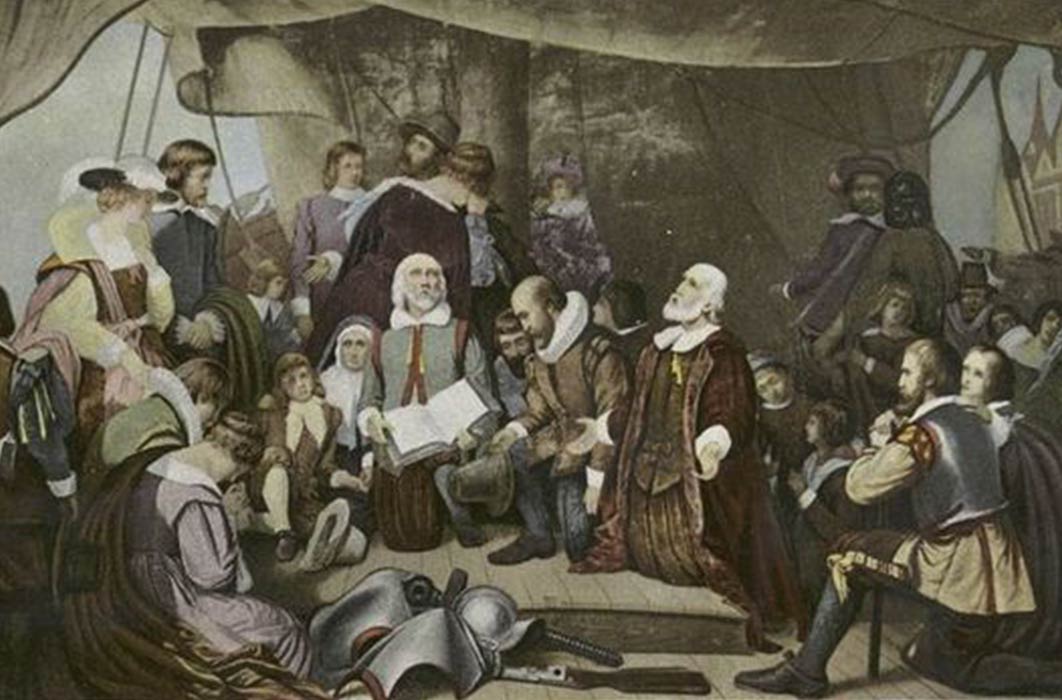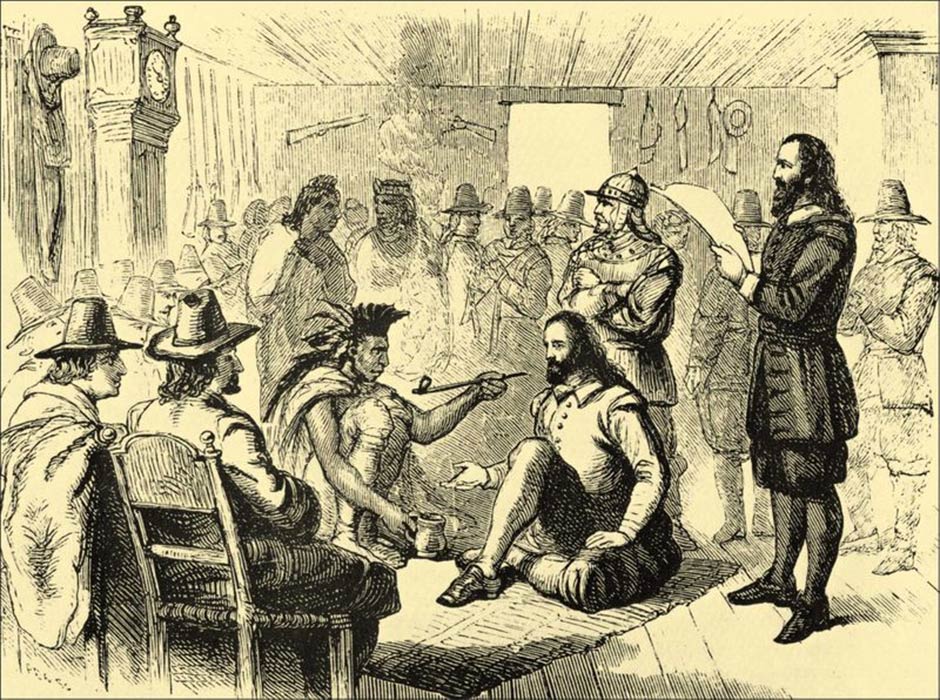
King Philip’s War: 17th-Century Hostility Between The Wampanoag and The Pilgrims
On June 20, 1675, the small border town of Swansea, Massachusetts, was attacked by a band of Pokanoket of the Wampanoag tribe. No casualties resulted from the Pokanoket raid that day, except for some dead cattle and homesteads that were raided and robbed. Four days later, the massacre began. On June 24, the Pokanoket returned, and this time they killed none of the inhabitants but wounded seven. After the Pokanoket raid, the call to arms spread throughout the colonies, and the people responded. This was one of the most devastating conflicts in America, and it all started with the murder of John Sassamon and the trial that led to the execution of three Wampanoag warriors. However, there is a more important question. Was it really the trial and execution of the three warriors that gave rise to the war or was there more to the story?

Massasoit smoking a ceremonial pipe with Governor John Carver in Plymouth, 1621 (Public Domain)
Wampanoag And Pilgrims Treaty
On the eve of June 20, 1675, the Wampanoag and Pilgrims relations were stable due to a treaty signed 54 years earlier between the two parties. The treaty was signed because the Wampanoag needed an ally against the stronger Narraganset tribe and the Pilgrims needed a parcel of land to call their own. Chief Massasoit of the Wampanoag, acknowledging that his tribe was weakened due to the ravages of a plague, reached out to the newly arrived Pilgrims seeking an alliance. The Pilgrims also had use of an ally, as they too were ravaged by a disease that decreased their population substantially since their arrival back on November 11, 1620.





